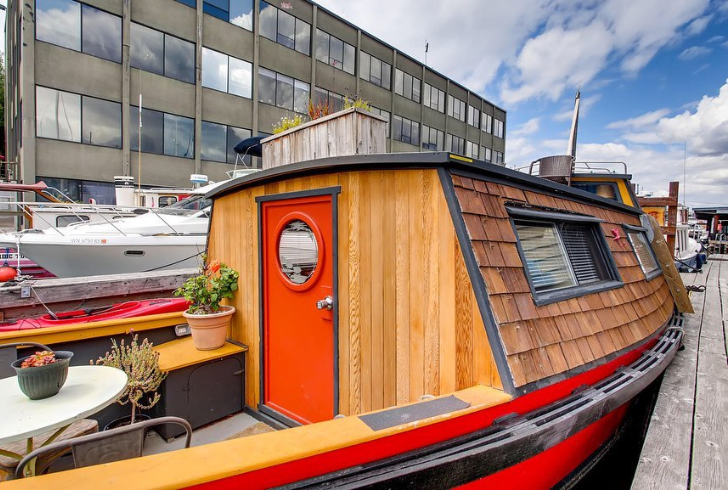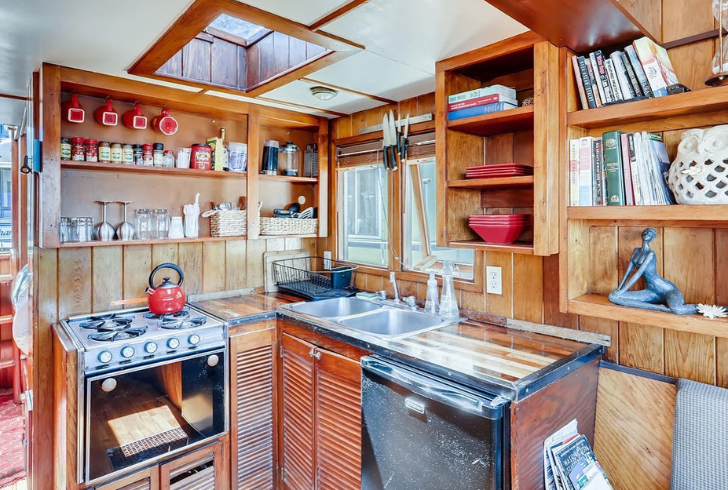Seattle’s waterfront has long been a home for those seeking an alternative to traditional housing. Once considered an affordable option, living on a boat in the city has become more complex over the years, with rising costs and increasing demand for moorage.
While some still embrace the lifestyle for its freedom and connection to the water, the financial reality is shifting.
The Appeal of Boat Living
For many, living aboard offers a unique sense of independence. The ability to wake up surrounded by water, witness breathtaking sunsets, and live in a tight-knit marina community holds undeniable charm. Seattle hosts one of the largest liveaboard populations on the West Coast, with marinas like Shilshole Bay providing space for hundreds of residents.
Beyond lifestyle appeal, boat living was once significantly cheaper than renting an apartment or buying a home. Over the past decade, however, costs have surged. Moorage fees have risen dramatically, along with maintenance expenses and regulatory requirements. What was once an affordable housing alternative is now a financial balancing act for many residents.

The Financial Reality of Living on a Boat
While living aboard eliminates traditional rent or mortgage payments, boat owners face a different set of expenses:
1. Moorage Fees – Monthly costs range from $500 for small slips to over $3,000 for larger boats. Some marinas impose additional liveaboard fees.
2. Maintenance – Boats require regular upkeep, with electrical and plumbing repairs often costing more than land-based alternatives due to specialized labor.
3. Utilities – Electricity, internet, and sewage services are necessary and add to monthly expenses.
4. Insurance and Registration – Many marinas require proof of insurance, adding another recurring cost.
5. Storage and Mailing Addresses – Some liveaboards rent storage units for excess belongings and pay for P.O. boxes to receive mail.
For those able to handle their own repairs, costs can be kept lower. However, unexpected issues can arise, making financial planning essential.
Challenges in Securing Moorage
Finding a marina slip in Seattle is no easy task. Many marinas have long waitlists, sometimes stretching years. Demand for liveaboard spots has surged, fueled by the city’s rising housing prices. Even for those who secure a space, regulations often limit the number of liveaboard residents per marina.
Harbor Village Marina’s management reports an influx of inquiries from young professionals looking for an affordable alternative to traditional housing. However, as marina rates climb, the cost advantage is diminishing. Some residents have even considered relocating to more affordable waterfronts outside the city.
Benefits and Drawbacks

Living on a boat comes with adjustments. Space constraints mean residents must adopt a minimalist lifestyle. Storage is limited, and everyday conveniences—such as running multiple kitchen appliances at once—can be challenging. However, many liveaboards appreciate the simplicity and find ways to make it work.
Socially, marina communities offer a close-knit environment. Neighbors often share resources, skills, and even meals. Events like dockside gatherings and informal music sessions bring residents together, fostering a sense of camaraderie rarely found in urban apartment complexes.
The Future of Boat Living in Seattle
With increasing costs and limited availability, boat living in Seattle is evolving. Some long-term liveaboards are considering downsizing or moving to less expensive marinas. Others remain committed, adjusting to the changing financial landscape while holding onto the unique experience of life on the water.
Despite the challenges, the appeal of living on the water persists. For those who can navigate the costs and logistics, the lifestyle offers an irreplaceable connection to the sea and a way of life unlike any other in the city.

